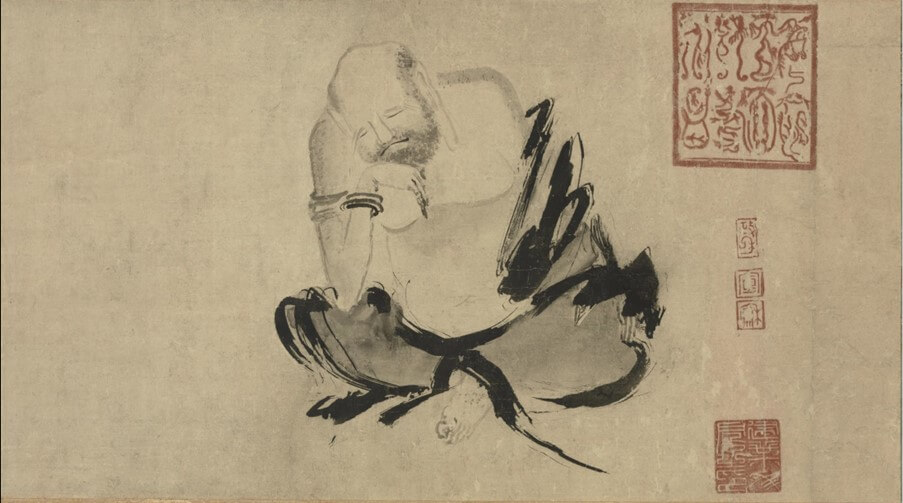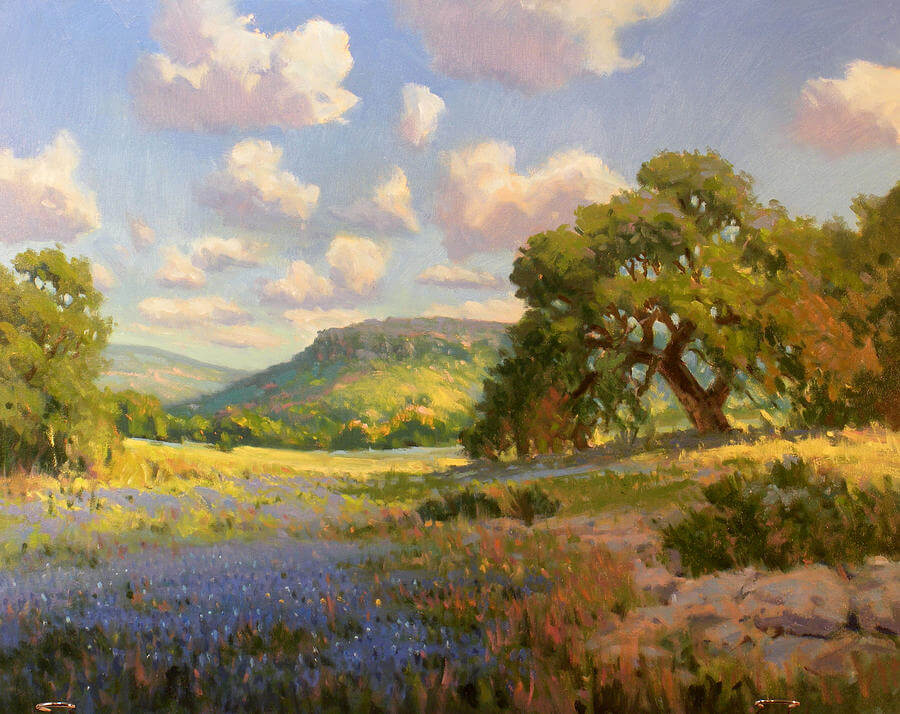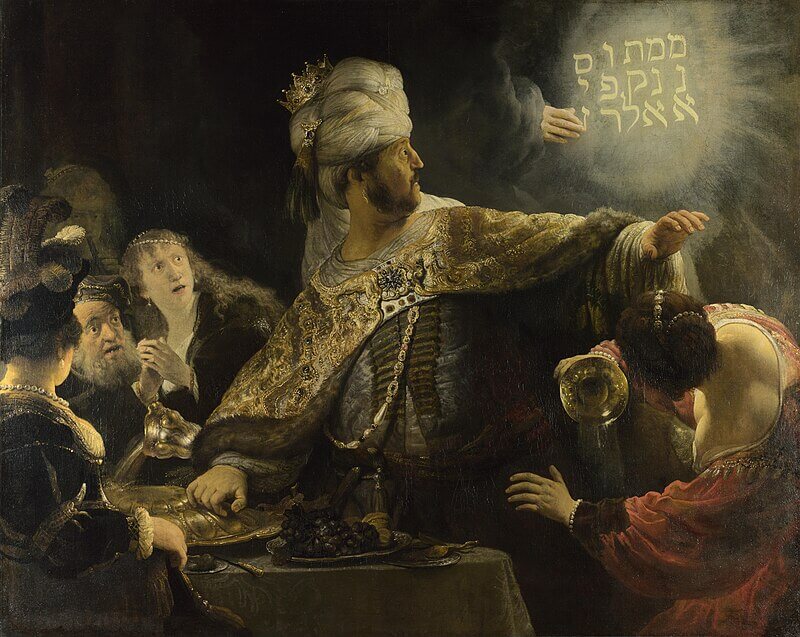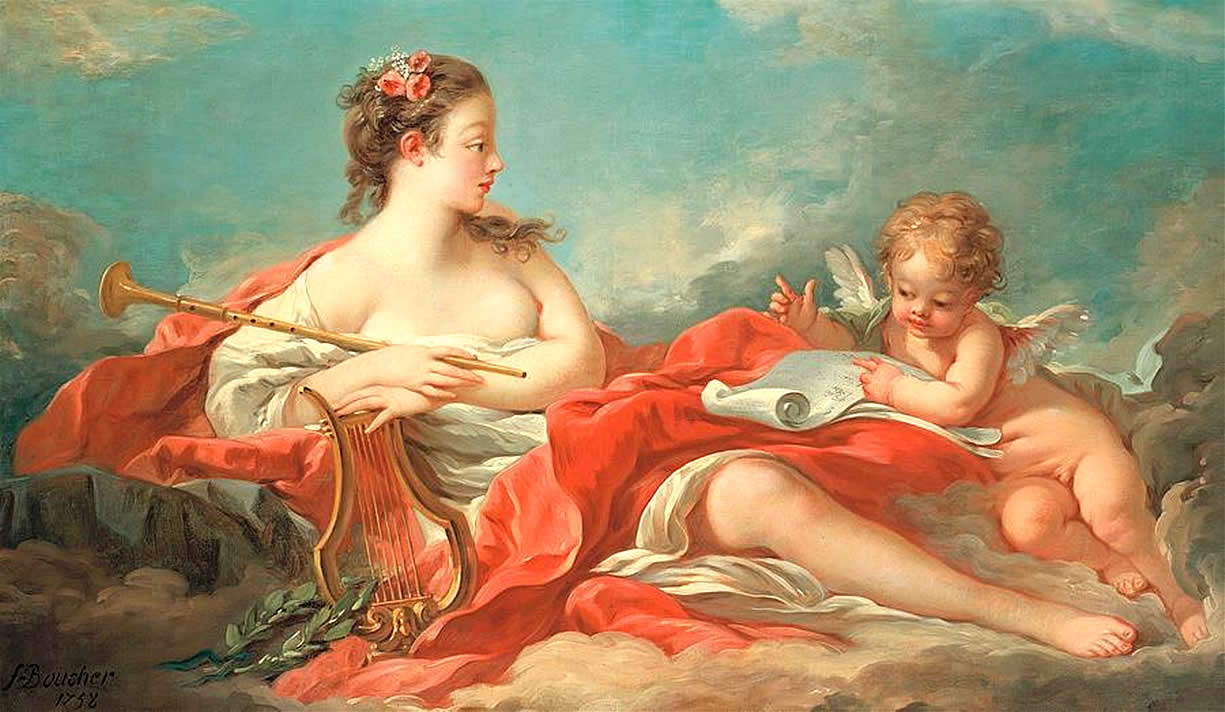The ‘Ask Not’ Poems – Zen Wisdom of the Tang Poet-Monk Qiji

One of the most prolific of the Tang dynasty Chinese poets is the Ch’an (Zen) monk Qiji (齊己), the author of over 850 poems, of a varied and often original nature. He ranks fifth among the Tang poets in terms of output, and is considered the most important of three poet-monks of the period, the others being Jiaoran (730-799) and Guanxiu (832-912). These poet-monks form a very distinctive feature of the Tang and beyond, in which poetry, though seldom doctrinal, was considered of equal spiritual value to the more formal teachings embodied in sutras and commentaries. Qiji was active in poetry circles, exchanging works with many of the leading poets of the period, and was widely travelled, being associated with a number of famous Buddhist monasteries scattered around the country, such as those on Mount Heng (Hunan), Mount Lu (Jiangxi) and Mount Tiantai (Zhejiang).
His style is sparse and understated, in the tradition of late Tang poetry, and his poems embrace a wide variety of topics, including even satire, somewhat surprisingly. They nevertheless all exude a Zen spirit, a mixture of ruggedness and simplicity which frequently hides, almost apologetically, some profound insights, and this is nowhere more evident than in the ‘Ask Not’ series of fifteen poems, which are among his best-known writings. These were composed in 921, after the poet was appointed to head a temple in Jiangling, Hubei province. The appointment was made at the behest of the local military commissioner and provided Qiji with a more comfortable and leisured life than he had hitherto enjoyed. In his brief introduction to these poems, he writes: “Originally I was a monk of the green mountains, sitting in solitary meditation on a white rock. But now these noblemen have built rooms to house me, provided funds to feed me, and arranged for my complete comfort. Relieved of every concern, at liberty to roam or rest as I choose, I need hence no longer keep company with the clouds and springs, the wild monkeys and birds. If I can be as carefree as this, what could there be to tie me down?”
It is possibly due to this new and relaxed lifestyle that the ‘Ask Not’ verses are more philosophical in tone than some of his other poems, and characterize the iconoclasm, eccentricity, humour and freedom of spirit for which Zen is famous. At times sardonic, at times resigned, they constitute a unique contribution to Zen poetry.
There are fifteen verses in all (in the 5-character 8-line lüshi style), of which I have translated ten, the others being either corrupted, or with historical allusions which are obscure to the modern reader. Some explanatory notes are provided at the end.
1.
莫問疏人事,王侯已任伊。不妨隨野性,還似在山時。
靜入無聲樂,狂拋正律詩。自為仍自愛,清凈里尋思。
Ask not if I care about human affairs,
Whether of kings, nobles or anyone else.
No harm in following my primitive nature,
As I did when living in the mountains.
Calm, I enter a world of silent music;
Crazy, I write disordered verse.
I just look to myself,
Pondering matters in tranquillity.
2.
莫問伊嵇懶,流年已付他。話通時事少,詩著野題多。
夢外春桃李,心中舊薜蘿。浮生此不悟,剃髮竟如何。
Ask not whether Yi and Ji were idle;
The fleeting years were their reward.
They seldom mentioned worldly matters,
Their poems were all on natural topics;
Dreaming of the peach and plum in spring,
Content with the old rags of a hermit.
If you don’t understand this fleeting world,
Will you end up shaving your head?
3.
莫問休行腳,南方已遍尋。了應須自了,心不是他心。
赤水珠何覓,寒山偈莫吟。誰同論此理,杜口少知音。
Ask not if I’ve ceased my wandering,
I’ve already been all over the South.
Understanding should be what you yourself understand,
Your mind belongs to no-one else.
Why search for lost talents?
Stop singing bravely atop cold mountains.
With whom can I discuss these thoughts?
Since so few can follow me, I’ll keep quiet.
4.
莫問孱愚格,天應只與閑。合居長樹下,那稱眾人間。
跡絕為真隱,機忘是大還。終當學支遁,買取個青山。
Ask not whether someone is weak or lazy;
Heaven is never concerned with busy activity.
Where a handful gathers under the trees,
That is enough to be called a crowd.
Appearances forsaken make for a true recluse;
Contrivances forgotten mark the Great Return.
In the end, the crutch of learning must be abandoned,
And a few green hills sought out instead.
5.
莫問無求意,浮雲喻可知。滿盈如不戒,倚伏更何疑。
樂矣賢顏子,窮乎聖仲尼。已過知命歲,休把運行推。
Ask not if I’ve given up desire.
Observe the passing clouds and you will know.
Excess is not a trait of monks;
Why hesitate to take what comes?
The virtuous Yanzi was happy,
The sage Confucius was poor.
Once you’ve reached the age of awareness,
Don’t try to change the course of destiny.
6.
莫問閑行趣,春風野水涯。千門無謝女,兩岸有楊花。
好鶴曾為客,真龍或作蛇。躊躕自回首,日腳背樓斜。
Ask not about idle pleasures,
The spring breeze on stormy waters by the shore.
No women to admire beside the palace gates,
Just poplar blossoms either side of the river.
A crane once proved a welcome guest,
Even a real dragon, or was it just a snake?
Hesitantly I turn my head,
To see the setting sun slant low behind a house.
7.
莫問真消息,中心只自知。清風含笑詠,明月混希夷。
坏衲涼天擁,玄文靜夜披。善哉溫伯子,言望至公知。
Ask not for news,
My mind is set on self-awareness.
The cool breeze tells its story with a smile,
The full moon with primordial mystery and silence.
The ragged garments of a monk are exposed to cold by day,
By night to its dark and gentle embrace.
Like a kind old relative,
The moon speaks with balance and wisdom.
8.
莫問關門意,從來寡往還。道應歸淡泊,身合在空閑。
四面苔圍綠,孤窗雨灑斑。夢尋何處去,秋色水邊山。
Ask not why I close my gate.
Few comings and goings for some time now.
The Way demands a return to simplicity,
The body best suited to a leisurely pace.
Green moss surrounds me on every side,
My single window spattered with rain.
And where do my wandering dreams take me?
To the colours of autumn on riverside hills.
9.
莫問衰殘質,流光速可悲。寸心修未了,長命欲何為。
坐臥身多倦,經行骨漸疲。分明說此苦,珍重竺乾師。
Ask not about my feeble and defective state.
How lamentable the rapid passing of time!
Feelings and their cultivation are endless,
So why desire a long life?
The weariness of a body that mostly sits or lies,
The feeling of bones that deteriorate slowly.
Speaking plainly of this suffering
Is the Dharma Master’s chief merit.
10.
莫問野騰騰,勞形已不能。殷勤無上士,珍重有名僧。
坐覺心心默,行思步步冰。終歸石房里,一點夜深灯。
Ask not about energy and vigour;
I’m already incapable of physical work.
The virtues of a reputable monk
Lie in mindfulness, not superior attainment.
He sits and observes, attentive and silent;
He moves carefully, as though walking on ice.
Once back in his stone cell….
The glimmer of a candle in the dead of night.




